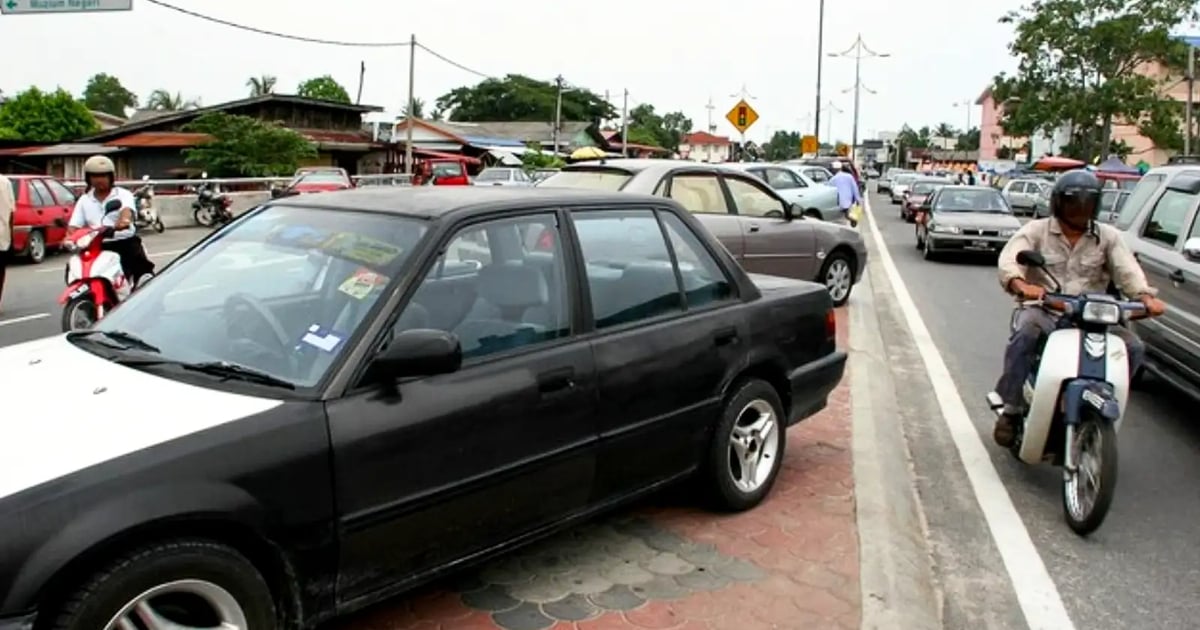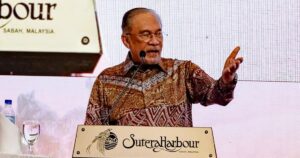
From Boo Jia Cher
Walk down any Malaysian neighbourhood street and you’ll see it: cars lined bumper-to-bumper on both sides, spilling onto grassy patches, sidewalks (if they exist), and even bus stops.
The scene is so common that it barely raises eyebrows anymore. But just because it has become normalised doesn’t make it right.
This messy, unregulated culture of street parking eats into public space, erodes urban liveability, and chips away at common sense. Why do we allow private property, like cars, to be dumped so freely and endlessly onto public land, with no personal cost or consequence?
Imagine everyone dragging their sofas or cupboards out onto the street and leaving them there all year round. There would be uproar. Yet for vehicles, the same logic doesn’t apply.
The core problem is entitlement. Across the Klang Valley, households freely buy extra cars without proving they have space to store them.
Even in PPR flats, families often own multiple vehicles crammed into every available gap, double-parked, or dumped on empty land.
The cost falls on everyone else: pedestrians forced onto the road, buses blocked from stops, emergency vehicles delayed, and neighbourhoods left with an ugly, congested streetscape.
This Malaysian entitlement culture feeds a vicious cycle: the more we normalise “free” on-street parking, the more we encourage car ownership, which leads to more traffic congestion, more pollution, and increasingly dysfunctional neighbourhoods.
Ironically, some of these neighbourhoods are near LRT and MRT stations, or within walking distance of shops, schools, clinics and eateries, making car ownership unnecessary, if only we had better urban planning and a cultural shift toward walking and cycling.
Of course, if local councils were to suddenly crack down on illegal parking through fines, towing or enforcement zones, many people would complain. The most common refrain: “But where will I park my car?”
Recently, there was a viral video of a group of aunties and uncles utterly furious that the local council had fined them for parking haphazardly along a road. “How can?!” they demanded, as if enforcement was a personal insult. The truth: they were never allowed to park there in the first place.
This is the core of the problem. We’ve built a system where car ownership is disconnected from personal responsibility.
Instead of asking: “Do I have space for a car?” people simply assume the public space will always absorb the overflow, for free. That model is unsustainable.
The truth is, if you don’t have a legal, designated space to store your car, maybe you shouldn’t own one. Public streets are not your garage.
Buying a car should come with the same basic obligation as buying any large object: if you don’t have room for it, don’t expect society to carry the burden.
We should take a leaf from Japan’s book. There, you can’t even buy a car without first proving that your property has space to accommodate it. This policy discourages unnecessary car purchases and protects public space from being misused.
Instead, their dense, transit-friendly cities show what happens when you put people first, not vehicles.
If Malaysia wants to reclaim its streets, here’s where to start:
- Require adequate private parking. If your home can’t fit a pick-up truck, you won’t be able to buy a Hilux.
- Levy steep taxes on second and third vehicles. Make excess ownership a costly choice.
- Ban overnight parking on public roads. Enforce fines and towing for illegal parking without exception.
- Design streets for people, not just cars. Prioritise pedestrians, cyclists, and buses over private vehicles.
- Reframe car ownership. Stop treating limitless vehicle ownership as an untouchable right. Instead, recognise it as a high-impact personal choice that affects everyone.
Yes, the transition will be painful. But sometimes disruption is necessary to restore fairness.
When enforcement finally arrives, it will expose how broken our assumptions have been and push us toward a better model. One where neighbourhoods are for people, not parked vehicles.
Boo Jia Cher is an FMT reader.
The views expressed are those of the writer and do not necessarily reflect those of FMT.






